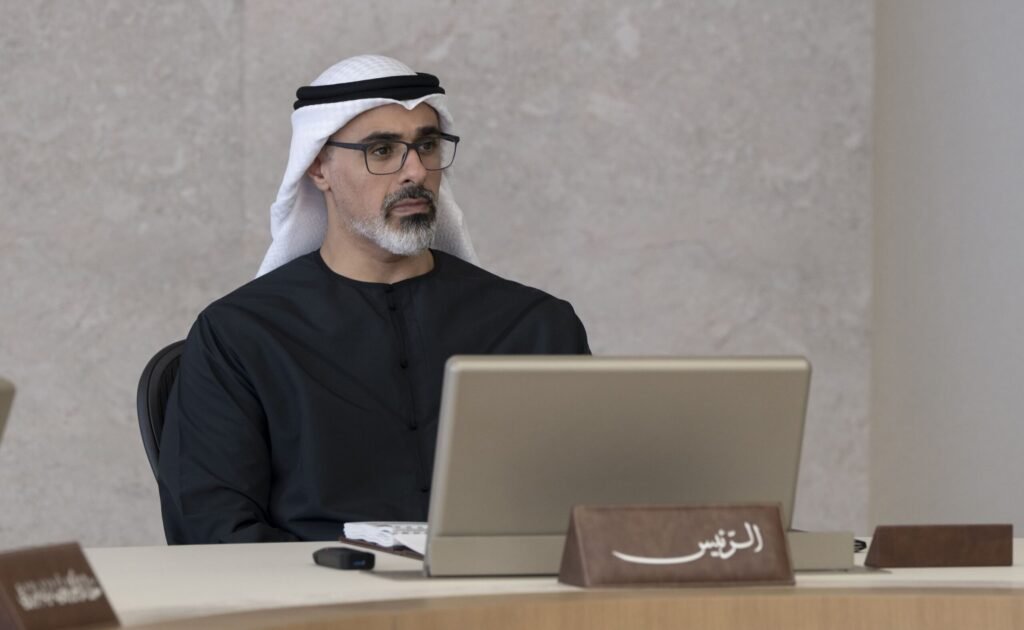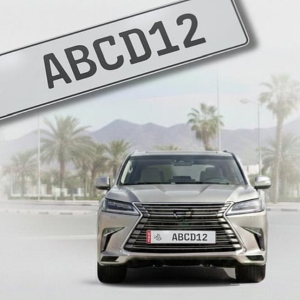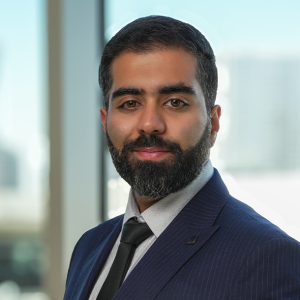Khaled bin Mohamed chairs Abu Dhabi Executive Council in a significant meeting that marked a new phase in the emirate’s governance. The session focused on strategies to enhance government performance, improve quality of life, and strengthen inclusion and innovation across Abu Dhabi. Under the leadership of His Highness Sheikh Khaled bin Mohamed bin Zayed, the council took decisive steps toward realizing Abu Dhabi’s ambitious vision for the future.
The Executive Council, the highest executive authority in Abu Dhabi, is responsible for implementing governmental policies, overseeing departments, and shaping public initiatives. When Sheikh Khaled chairs the council, it signals a clear commitment to proactive, forward-thinking governance. His leadership style combines strategic oversight with a hands-on approach, emphasizing efficiency, innovation, and people-centered development.
Understanding the Abu Dhabi Executive Council
The Abu Dhabi Executive Council is the emirate’s top decision-making body, overseeing the implementation of government policies and development plans. It serves as a hub for coordinating strategies across various sectors, including infrastructure, economy, education, digital transformation, and social services. The council plays a critical role in setting priorities and ensuring that government agencies work in a coordinated and efficient manner.

Sheikh Khaled bin Mohamed bin Zayed’s role as chairman has strengthened the council’s focus on innovation, sustainability, and inclusivity. His leadership reflects a blend of tradition and modern governance, aimed at balancing rapid development with social responsibility.
Key Objectives of the Meeting
The recent meeting chaired by Sheikh Khaled focused on several important objectives:

- Reviewing the progress of existing government initiatives and programs
- Approving new strategic plans and funding allocations
- Enhancing citizen-focused services and public engagement
- Driving digital transformation and the adoption of new technologies
- Promoting inclusion and social equity
These priorities reflect a holistic approach to governance, where development is measured not only by economic growth but also by quality of life, accessibility, and innovation.
Major Decisions and Approvals
When Khaled bin Mohamed chairs Abu Dhabi Executive Council, critical decisions are made that shape the future of the emirate. The meeting addressed a wide range of initiatives aimed at improving governance, services, and infrastructure.
Expansion of the Liveability Strategy
One of the most significant decisions was the approval of a substantial expansion of Abu Dhabi’s Liveability Strategy. This initiative is designed to enhance the overall quality of life for residents through improvements in urban planning, public services, and infrastructure. The strategy emphasizes green spaces, sustainable transportation, housing, healthcare, and recreational facilities.
By allocating significant resources to this strategy, the council aims to make Abu Dhabi not only a hub of economic growth but also a city where residents enjoy a high standard of living. Investments will focus on modern urban development, sustainable communities, and services that meet the evolving needs of citizens and residents.
Abu Dhabi Government Digital Strategy 2025–2027
Another key focus was the approval of the Abu Dhabi Government Digital Strategy 2025–2027, a roadmap for the emirate’s technological advancement. This strategy includes the adoption of digital tools across all government services, the development of smart platforms, and the integration of artificial intelligence to improve efficiency and service delivery.
The digital transformation plan includes:
- Automation of government services for greater efficiency
- Implementation of cloud computing for secure data management
- Use of artificial intelligence to provide personalized and faster services
- Development of smart city technologies to improve urban living
- Creation of thousands of jobs in technology and innovation
This digital strategy reflects Abu Dhabi’s commitment to becoming a global leader in smart governance and innovation. It also aligns with the broader vision of a knowledge-based economy that leverages technology to enhance public service and citizen engagement.
Inclusion and Empowerment of People of Determination
The council also emphasized the inclusion and empowerment of People of Determination, a term used in the UAE to refer to individuals with special needs. This initiative aims to create an accessible and inclusive environment across the emirate, ensuring that everyone can participate fully in society.
Key measures include:
- Expansion of accessible public spaces and facilities
- Enhanced access to education, healthcare, and employment opportunities
- Recognition programs to encourage businesses and institutions to implement inclusive practices
- Integration of students with special needs into mainstream schools where appropriate
Sheikh Khaled highlighted the importance of equality and the role of every member of society in contributing to national development. These measures reflect a strong commitment to social cohesion, equity, and the empowerment of all residents.
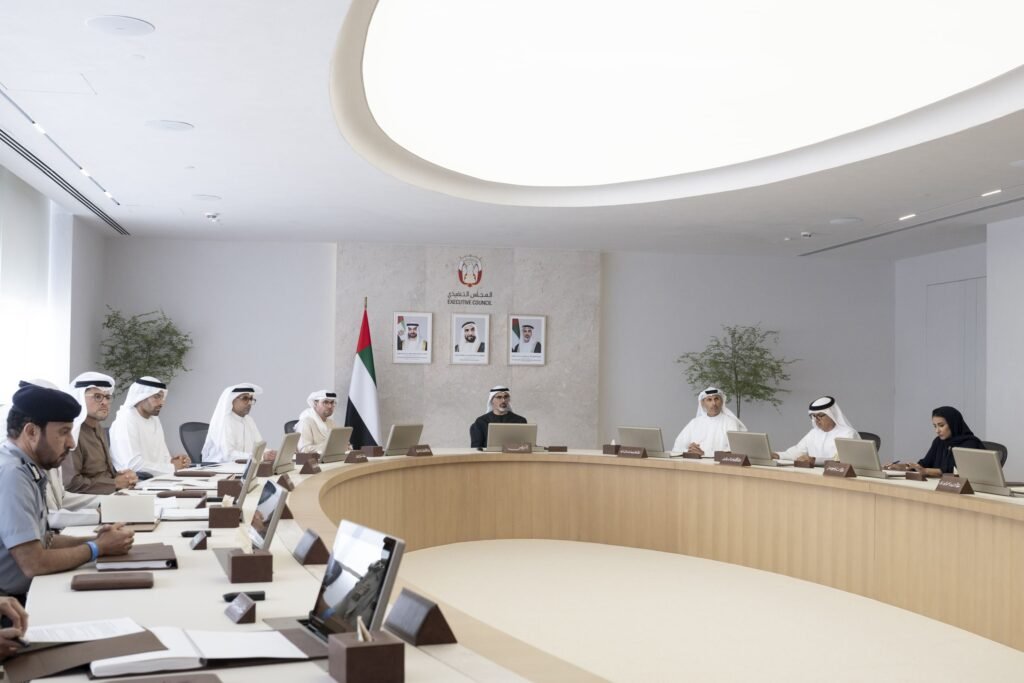
Strategic Themes Emerging from the Council Meeting
The recent meeting, chaired by Sheikh Khaled, highlighted several strategic themes that will guide Abu Dhabi’s governance in the coming years:
Citizen-Centered Governance
A key focus of the council is enhancing public services to be more responsive, efficient, and accessible. This approach ensures that the needs of citizens and residents are placed at the forefront of government planning and decision-making. By prioritizing citizen experience, the government aims to create a more inclusive and responsive administration.
Digital Innovation and Smart Government
The council’s emphasis on digital transformation reflects Abu Dhabi’s commitment to innovation. By integrating artificial intelligence, cloud computing, and smart city technologies, the government seeks to streamline processes, reduce bureaucracy, and provide services that are both efficient and personalized.
Social Inclusion and Equity
Inclusion of People of Determination and other marginalized groups is a central pillar of the council’s agenda. This commitment ensures that development benefits all segments of society and promotes social cohesion.
Sustainable Development and Infrastructure
Investments in infrastructure, housing, transportation, and green spaces reflect a focus on sustainable development. These initiatives aim to create a city that is both modern and environmentally responsible.
Implications for Abu Dhabi and the UAE
The decisions made by Sheikh Khaled and the Executive Council have far-reaching implications for the emirate and the country as a whole:
- Enhanced Governance: Sheikh Khaled’s leadership brings clarity, focus, and a results-oriented approach to government operations
- Investor Confidence: Large-scale investments and clear development strategies signal stability and ambition, attracting both local and international investors
- Global Leadership: By prioritizing digital transformation, smart governance, and inclusivity, Abu Dhabi positions itself as a model for other cities in the region and globally
- Social Inclusion: The focus on People of Determination ensures that development is equitable and benefits all residents
- Economic Diversification: Digital strategies and smart city initiatives contribute to a diversified and knowledge-based economy
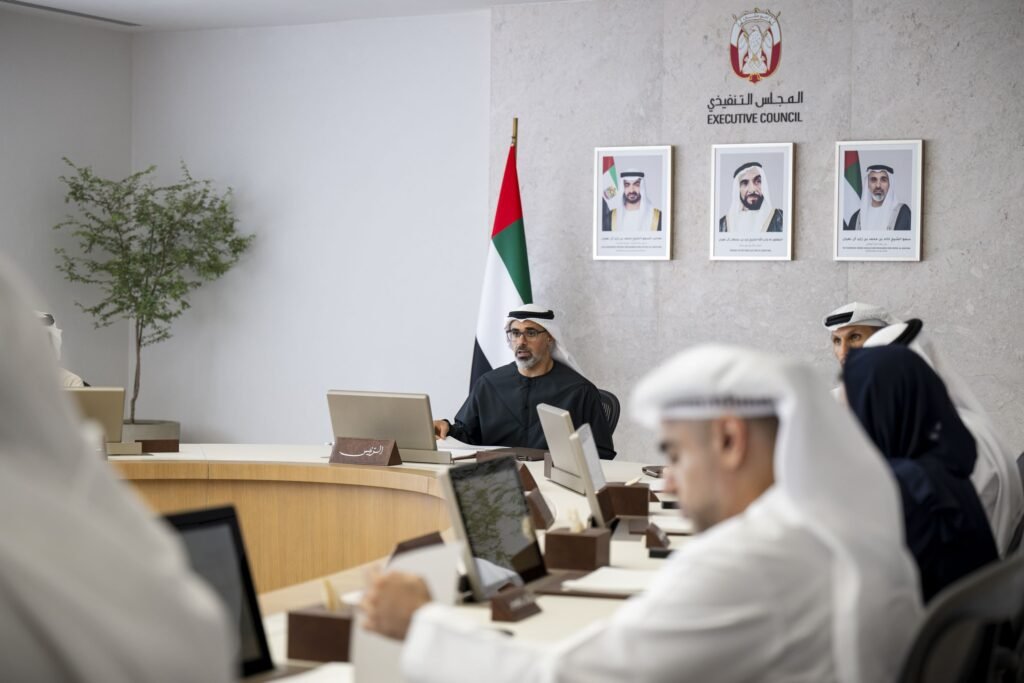
Challenges and Considerations
While the council’s plans are ambitious, implementation presents challenges:
- Execution Risk: Large-scale projects require careful planning, coordination, and monitoring to ensure timely completion
- Digital Accessibility: Ensuring that all residents, including those in remote or underserved areas, benefit from digital initiatives is essential
- Sustainability: Projects must balance growth with environmental responsibility and long-term impact
- Monitoring and Accountability: Transparent mechanisms for tracking progress and measuring outcomes are crucial for success
- Alignment with National Vision: Coordination with federal strategies ensures consistency and maximizes the impact of local initiatives
Looking Ahead
The recent council meeting sets the stage for a transformative period in Abu Dhabi. Key developments to watch include:
- Infrastructure and Urban Projects: Expansion of residential, commercial, and recreational areas to enhance livability
- Digital Transformation: Rollout of AI-driven services, online platforms, and smart city initiatives
- Inclusion Programs: Increased accessibility in public spaces, education, and workplaces
- Economic Development: Investments in technology, innovation, and knowledge-based industries
- Performance Monitoring: Regular progress updates to ensure transparency and accountability in government initiatives
Sheikh Khaled’s chairmanship signals a proactive approach to governance, where strategic planning, innovation, and social responsibility converge to shape the future of Abu Dhabi.
Conclusion
Khaled bin Mohamed chairs Abu Dhabi Executive Council is more than a headline—it represents a strategic vision for the emirate’s growth and development. Under his leadership, the council is taking decisive steps to enhance governance, promote social inclusion, advance digital transformation, and improve quality of life for all residents.
The council’s decisions reflect a commitment to innovation, sustainability, and equitable development, positioning Abu Dhabi as a model city for the region and the world. As these initiatives take shape, residents and stakeholders can expect tangible improvements in public services, infrastructure, and social equity.
With clear priorities, strong leadership, and a forward-looking strategy, Abu Dhabi is set to continue its journey as a thriving, inclusive, and innovative city, demonstrating the power of visionary governance in shaping the future.
Do follow UAE Stories on Instagram
Read Next – Accor and Al Qimmah to Develop 3,000 Hotel Keys in Saudi Arabia

